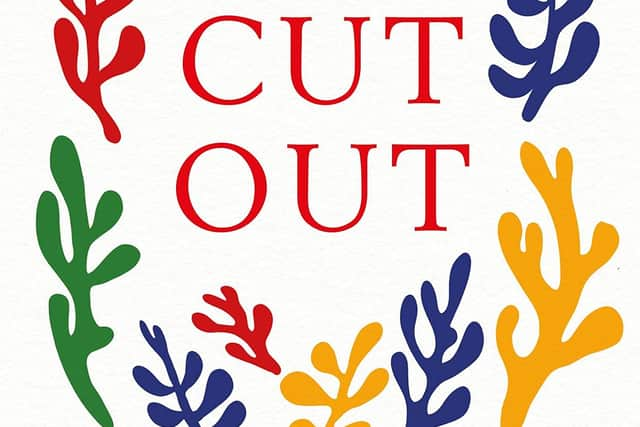Book review: Cut Out, by Michèle Roberts


Cut Out is a family mystery and also, as is the case with so much of Michèle Roberts’s work, a celebration of French culture and cuisine. The title refers to Henri Matisse’s late work, the paper cut outs he made at times when he could no longer paint. In truth, however, while Roberts acknowledges a debt to Hilary Spurling’s biography of Matisse, the novel is not really about him. It would scarcely read differently if the old painter had been a purely fictional figure.
The novel is told partly in the third person, partly in two first person narratives. It begins sometime in the 1950s with two young women, Clemence and Berthe, in a church in Nice. Their friend Monique is about to take her first vows as a nun – though one’s first thought it that she is the bride in a different sort of marriage. It is clear that neither of her friends is comfortable with Monique’s vocation; it’s not what they expected of her, and Berthe feels in need of a cigarette.
Advertisement
Hide AdThe focus then shifts to some time nearer the present and a first person narrator, Denis. He is apparently Berthe’s son and Clemence is his godmother. She is now confined to a home and he plans to visit her. There are dark, unexplained things in his life and in the lives of of his parents on which he hopes Clemence can shed light.


In truth, thought there is a plot here, and one carefully devised, it is not very compelling. This isn’t a novel you read eager to find out what happens next – even when, as is often intriguing in fiction, the questions and answers are buried in a past perhaps half a century old. But the plot, centring on the question of Denis’s identity, may be held necessary to keep the action ticking along while allowing for an episodic exhumation of the lives of the three girls, Clemence, Berthe and Monique. All the same, you are unlikely to be held by this mystery. There are, however, other and deeper pleasures to be had.
There are fine evocations of French provincial life in the years after the war, a time of poverty, rationing and hardship – Clemence comes from a poor family. Later, leaving home in the company of an artist’s deserted mistress, she finds work in a hotel in Nice, and it is there as a chambermaid who is also an aspiring artist that she encounters Matisse and his entourage. All this will be recalled more than half a century on, in passages of descriptive writing and in reflections on the position of girls determined to live independently. Roberts’s Clemence might have strayed from a Colette novel or memoir, and this is offered as very high praise.
Of course, as Roberts realizes – and indeed allows Denis to remark in the book’s first person narrative chapters – the France which she so lovingly and pleasingly offers us has for the most part gone, surviving only in places left behind by the march of modernity. We live with it, even in it, only in memory, in novels and memoirs, in old movies and in the imagination. But the imagination needs sustenance if we are to live in it fully, and this is offered only in works such as this one. Many of us have our own certain idea of France, for it is a country of the mind for us, just as Scotland is a country of the mind for many foreigners. This often lyrical and always atmospheric novel has its flat passages, as almost all novels have, but it offers deep delights. It’s a book to be read slowly, taking time to pause, remember, picture and dream.
Cut Out, by Michèle Roberts, Sandstone Press, 263pp, £14.99
A message from the Editor:
Thank you for reading this article. We're more reliant on your support than ever as the shift in consumer habits brought about by coronavirus impacts our advertisers.
If you haven't already, please consider supporting our trusted, fact-checked journalism by taking out a digital subscription at https://www.scotsman.com/subscriptions